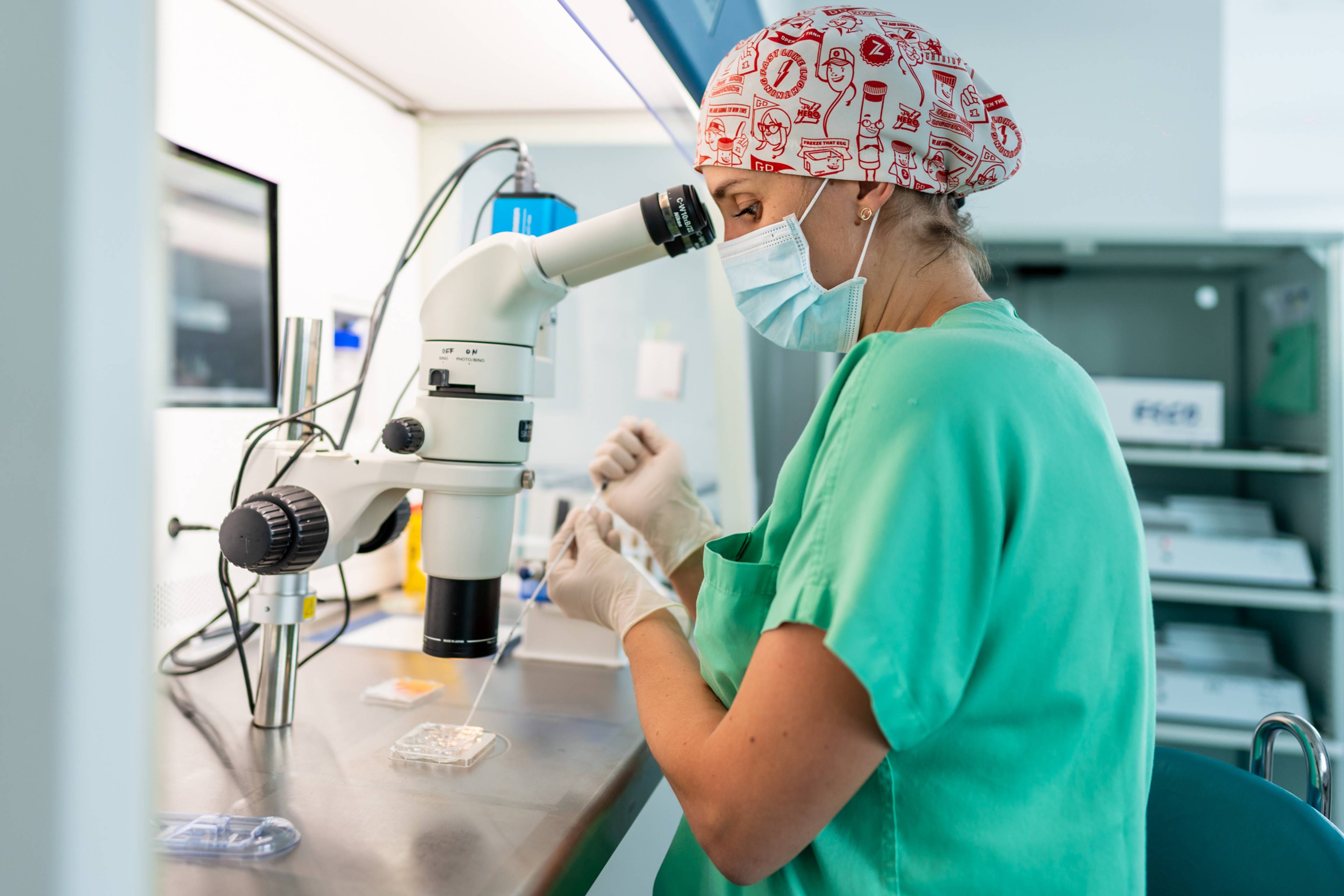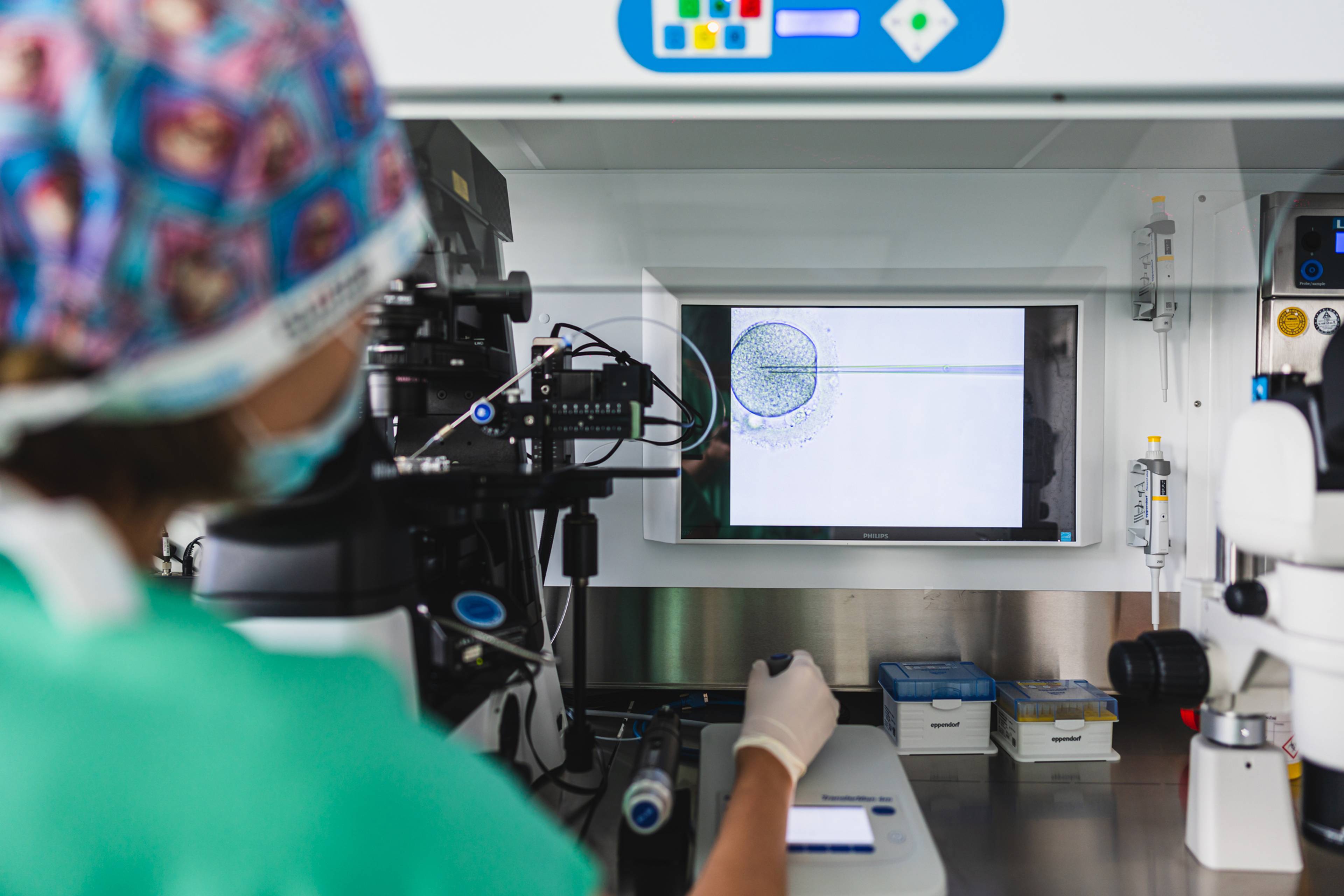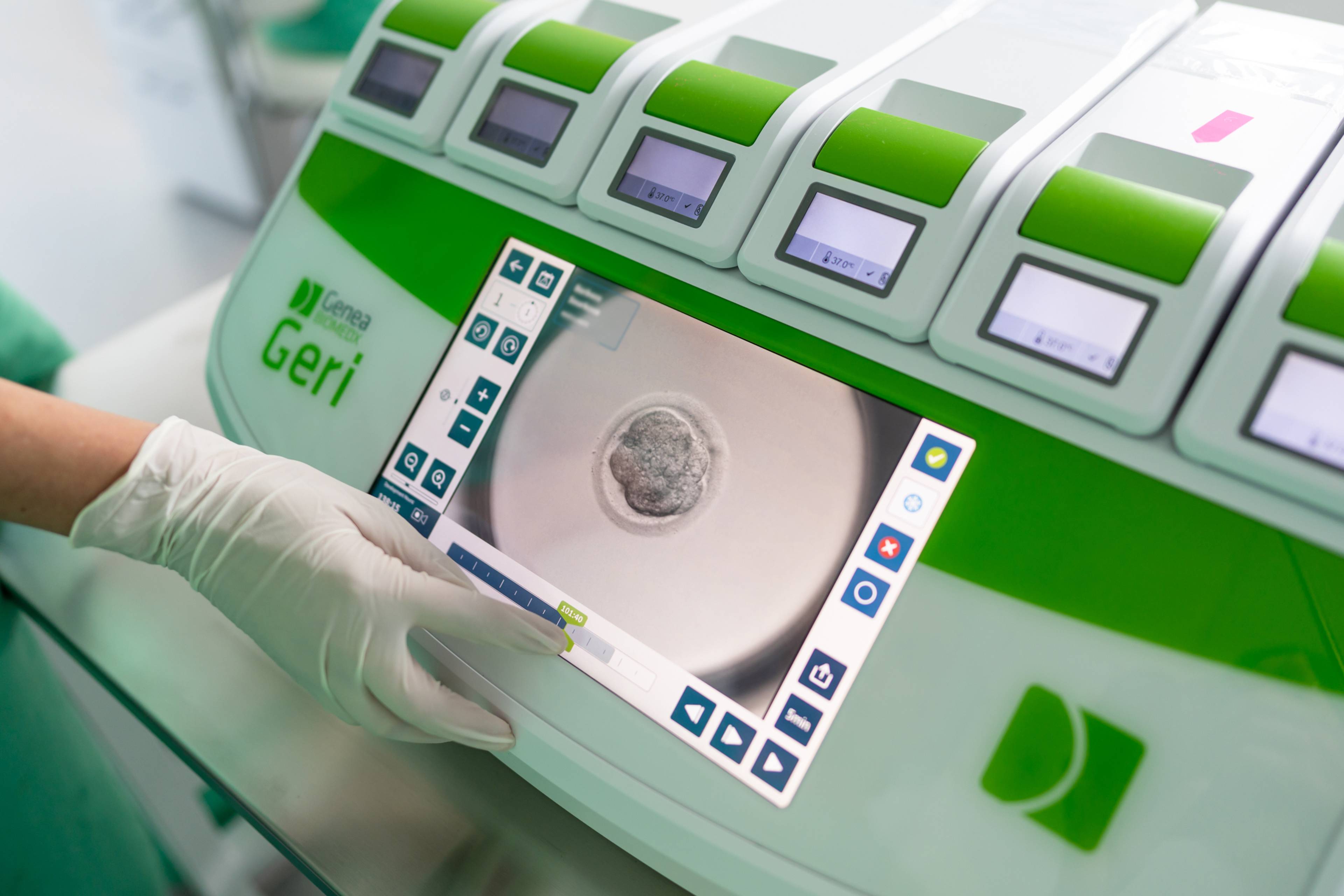Increased IVF success through Preimplantation genetic testing (PGT)
Preimplantation genetic testing (PGT) allows the examination of embryos created through in vitro fertilisation (IVF) before they are transferred to the uterus. The goal is to detect genetic abnormalities that often lead to early miscarriages and ensure that only healthy embryos with a higher chance of successful pregnancy are transferred to the uterus. There are three main types of PGT – PGT-A, PGT-SR, and PGT-M. This procedure also allows for HLA typing to facilitate the birth of a child who may help in the treatment of a sick sibling.
Who is PGT suitable for?
Preimplantation genetic testing (PGT) can be useful if you are concerned about hereditary diseases or pregnancy complications. The testing helps increase the chance of having a healthy child by detecting genetic issues before the embryo is transferred to the uterus. Consider PGT if:
- You or your partner have a genetic mutation that you would like to avoid passing on to your future child.
- One of you has chromosomal abnormalities that could lead to miscarriages or health problems in the child.
- Your previous pregnancy was affected by genetic abnormalities.
- You are over 35 years old and want to reduce the risk of genetic defects, such as Down syndrome.
- You have experienced recurrent miscarriages or multiple unsuccessful IVF attempts.
- Your partner has sperm quality issues, and you plan to use the ICSI method.
What types of genetic tests are appropriate in IVF treatment?

PGT-A: Preimplantation Genetic Testing for Aneuploidy
PGT-A is a diagnostic test that focuses on detecting chromosomal abnormalities, known as aneuploidy, in embryos before their transfer to the uterus. Aneuploidy means that the embryo has an incorrect number of chromosomes, which can lead to failed implantation, early miscarriages, or the birth of a child with a genetic defect, such as Down syndrome.
Chromosomal abnormalities do not spare even young women – an incorrect number of chromosomes can be detected in approximately one in five embryos in younger women. Just before menopause, aneuploidy is present in almost every egg. The risk of aneuploidy increases significantly around the age of 35, when the chances of finding an embryo with the correct number of chromosomes drop rapidly.
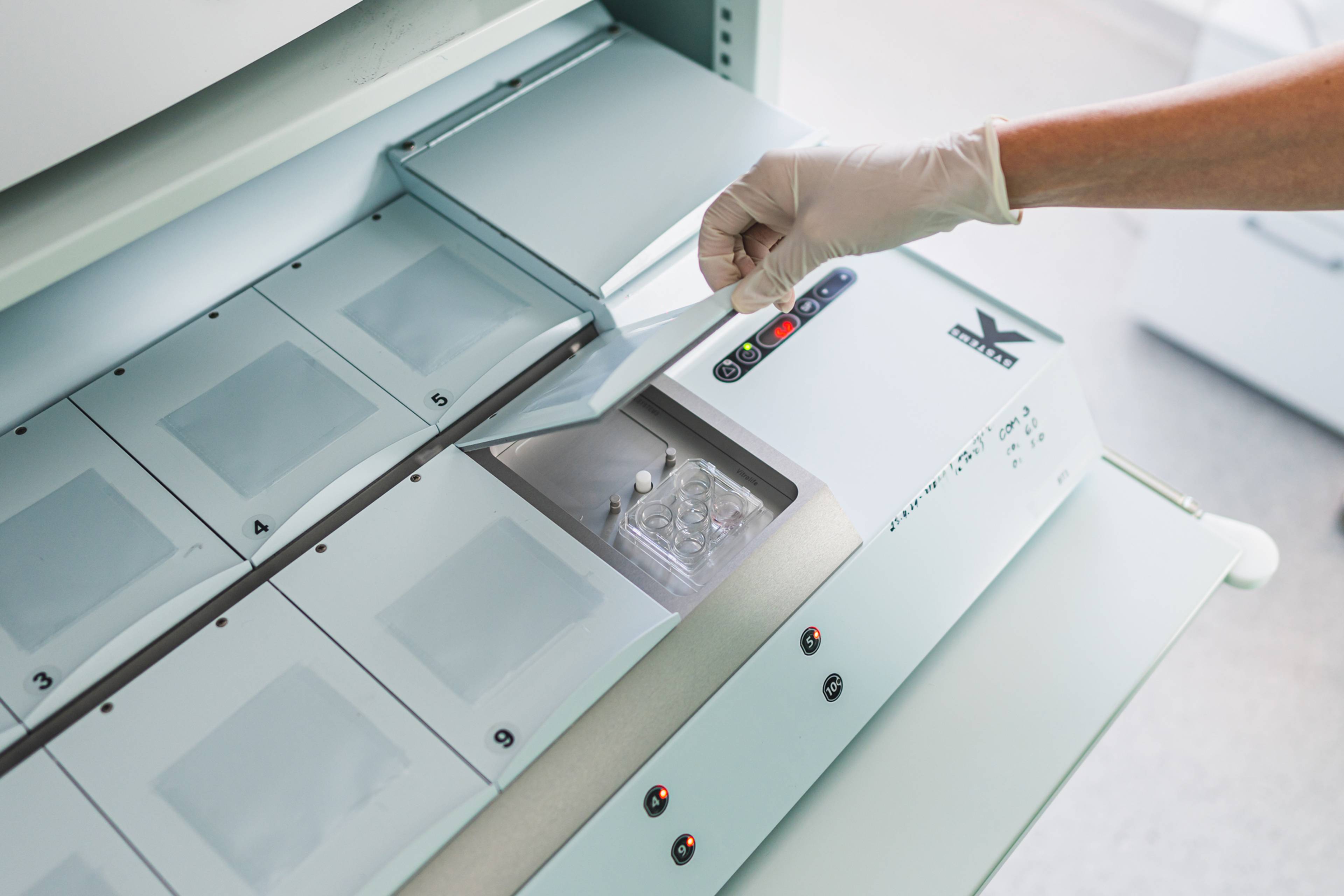
Who is PGT-A suitable for?
PGT-A is recommended primarily for those who have an increased risk of chromosomal abnormalities, such as:
- Women over 35
- Couples with recurrent pregnancy losses
- Couples with unsuccessful IVF cycles
- Couples who have already had a child with a chromosomal abnormality or a miscarriage due to a chromosomal abnormality
- Men with severe sperm production disorders
- Those who have undergone chemotherapy or radiotherapy
During an IVF cycle, embryos are cultured until day 5 or 6, when they reach the blastocyst stage. At this stage, 5–10 cells are taken from the embryo, which is then frozen. Test results are available within 2 weeks. If the embryo is healthy, it can be transferred to the uterus in the next cycle.
PGT-A helps increase the chance of a successful pregnancy by allowing the transfer of only healthy embryos without chromosomal abnormalities. This reduces the risk of miscarriages and shortens the time needed to achieve a successful pregnancy and the birth of a healthy baby.

PGT-M: Preimplantation Genetic Testing for Monogenic Disorders and PGT-SR: Preimplantation Genetic Testing for Structural Rearrangements
PGT-M and PGT-SR are tests focused on specific genetic issues. PGT-M is used to test embryos for known monogenic diseases (diseases caused by damage to a single gene), such as cystic fibrosis or haemophilia, while PGT-SR is intended for couples where one or both partners have a known chromosomal rearrangement that may lead to serious health problems in the child.
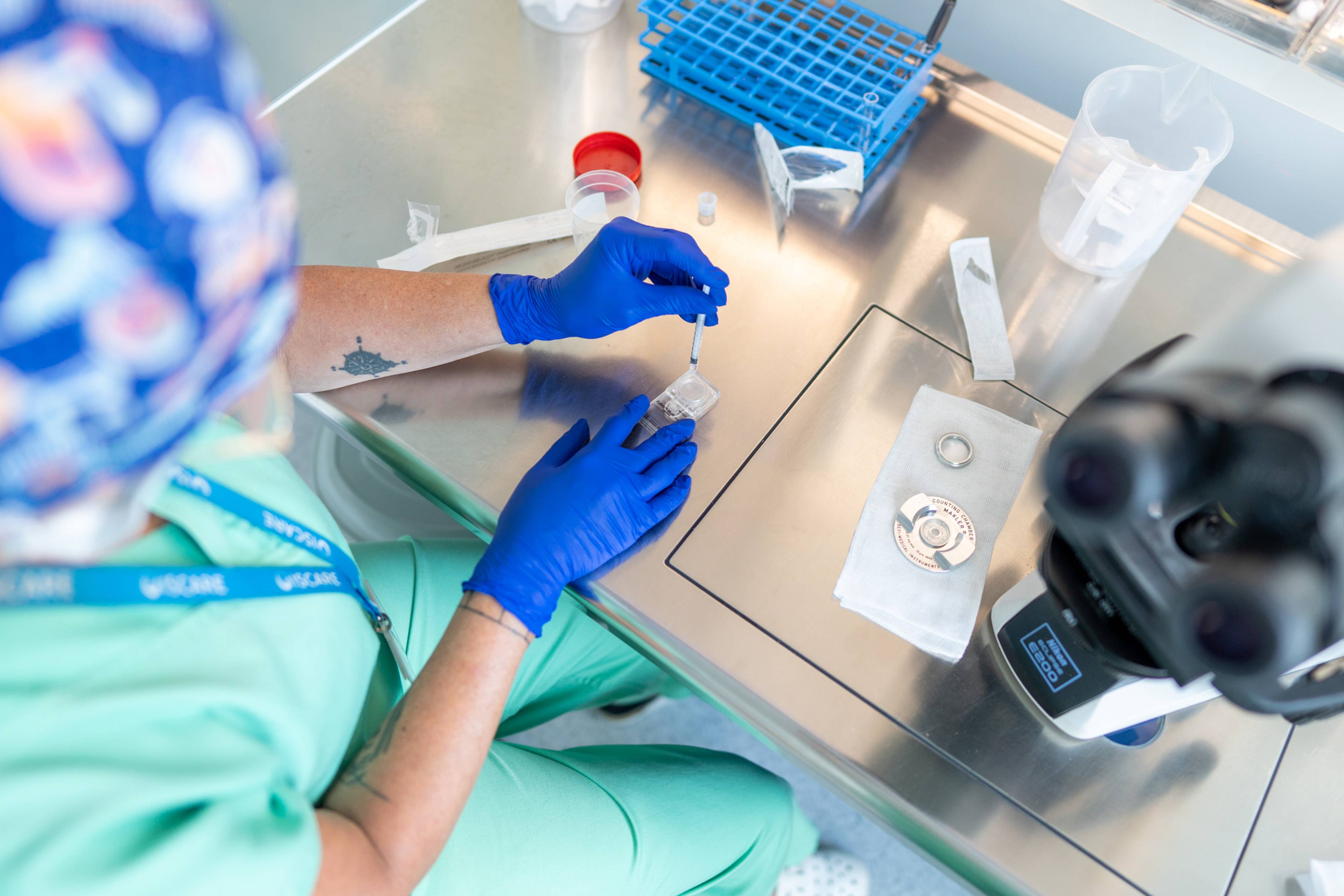
Who is PGT-M / PGT-SR suitable for?
- You or your partner are carriers of a mutation or have a genetic disease or chromosomal rearrangement.
- You have had to terminate a pregnancy due to a genetic disease or chromosomal changes in the foetus.
- You have a child with a serious genetic disease or chromosomal defect.
- This type of testing allows for a reduced risk of having a child with a serious genetic disorder or chromosomal defect and helps ensure that only healthy embryos are transferred.
PGT is an important tool in planning a safe and healthy pregnancy and is always performed based on careful consultation with a geneticist.
Take a look
How it looks like at
Assisted Reproduction


